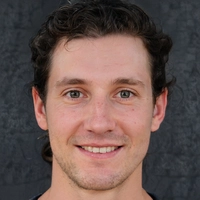Ever felt guilty about dropping a book midway only to wonder if you're missing out on something amazing later? Or flipped through page after page, waiting for a spark that never comes? You’re not alone—giving up on a book is more common than people admit. Plenty of us keep reading out of obligation, hoping either the plot, writing, or characters will suddenly connect. But is there a magic number of pages before deciding a book just isn’t for you? Let’s get into what readers, authors, and even some scientists have to say about cutting your literary losses.
What Do Readers Actually Do? Inside Real Abandonment Habits
Okay, so what’s the deal—how many pages does the average person actually give a book before quitting? When Goodreads polled readers in a survey, 38% admitted they've abandoned at least one book in the past year. But pinning down the moment they quit is all over the map. Some drop a book after just a chapter, while others push through 100 pages hoping things improve. According to a 2018 survey by Penguin Random House, about 56% of readers decide whether to continue or drop a book within the first 50 pages. Amazon’s Kindle data even shows people stop reading most unfinished books before reaching 30% of their length. What’s eye-opening is people feel a lot of pressure—like there’s a “right number” of pages to hit before it’s socially acceptable to call it quits.
Let’s be honest: There’s no universal law, but patterns do pop up. Here’s a rough breakdown in a handy table, pooling info from Goodreads polls and the Penguin survey:
| Pages Read Before Giving Up | Percentage of Readers |
|---|---|
| 10 pages or less | 12% |
| 11-50 pages | 30% |
| 51-100 pages | 22% |
| Over 100 pages | 15% |
| Finish every book | 21% |
There are serial finishers out there, but most of us bow out before page 100. Surprisingly, fewer than 1 in 5 adults say they force themselves to finish every book, according to a 2021 Pew Research survey. The guilt? It’s mostly in our heads. People abandon books because of slow plots, annoying characters, or writing that doesn’t grab their attention. The most-ditched genre in North America is literary fiction (according to a Book Riot poll), usually because readers expect a payoff that just doesn’t come soon enough.
So if you’re skimming, bored, or your mind’s wandering off every couple pages, you’re in good company. It’s not a moral failing or a sign you “don’t get it.” It might be the book, not you!

The 50-Page Rule—and Other Reader Hacks
Ever hear of the Rule of 50? It’s sometimes called the Nancy Pearl Rule, after the famous librarian and author. Her trick is simple: If you’re 50 pages in and just not feeling it, move on. If you’re over 50 years old, she suggests subtracting your age from the number 100 and reading that many pages instead—because, let’s face it, life’s too short for boring books. So if you’re 60 years old, try 40 pages; at 25, it’s 75 pages. Cute, right?
The Rule of 50 isn’t set in stone, but it gives permission to ditch with less regret. A lot of serious readers swear by their own rules. Some will stop at a specific chapter, or decide after three chapters—whatever feels like enough time for the author to show their best. Here are a few popular tips for deciding when to quit on a book:
- Ask yourself: Would I lend this book to a friend? If not, maybe it’s not meant for you.
- Pay attention to avoidance. If you find excuses not to pick up the book, your brain might be telling you it’s time to let go.
- Track your reading habits. Apps like Goodreads let you record where you stop or what made you lose interest. That can help spot patterns about what you really like.
- Be honest with yourself about your tastes. Maybe you keep picking up that dense literary fiction when you actually enjoy fast-paced thrillers. Life’s too short to be snooty with yourself.
- Try skimming ahead. It’s okay to check what’s coming—sometimes a quick peek at a later chapter convinces you to continue, or, helps you say goodbye guilt-free.
Should you announce it if you’re giving up? Some readers like to update their review with reasons for quitting. Others quietly move on. Both options are fine—it all comes down to what makes you feel free from obligation. If you’re part of a book club or classroom, it’s often worth discussing with others before bailing. You might find your perspective changes—or get the confirmation you need to let it go.

Why Book Abandonment Is Actually Healthy
Here’s a wild fact: forcing yourself to finish every book can dry up your love for reading. Yale’s “Reading Habits and Attention” study in 2022 found that readers who let themselves quit boring books are over 40% likelier to build a lasting reading habit. It makes sense—if you slog through a string of tedious pages, you risk turning reading into a chore, not a pleasure.
Another thing—your taste changes over time, and not every book will click. Polls show the average adult reads 4 books a year—but the happiest readers usually have abandoned at least 2 for every one they finish. Author Neil Gaiman famously said, “There are too many great books out there to waste time on ones you’re not enjoying.” So go ahead and drop that book if it isn’t speaking to you; you’ll find a better one faster and keep the whole thing fun.
Still feel that little pang of guilt when you stop reading? That’s totally normal, but the stigma is fading. More bookstagrammers and influencers openly share their abandoned reads—and often see “Did Not Finish” posts rack up more engagement than book recommendations. It’s almost like talking about a dud show on Netflix; everyone has their cut-off point, and sharing the moment you bailed is oddly liberating.
Your time matters. If you’re on the fence, remind yourself what you’re missing by slogging through something you loathe: maybe a mind-blowing thriller, a fascinating memoir, or simply time to relax. You’re not failing the book; it just wasn’t your match in this moment. Next time that “should I bail?” voice pops up, know that you’re not alone—most serious readers have a tried-and-true method for letting go.
So, next time you’re staring at page 37 and feeling nothing but dread, remember: there’s no magic page count. Many stop within the first 50 pages, others at 100, but the real answer is this: as soon as reading feels like a chore, you have permission to move on. Pick something that excites you. That’s the whole point of reading in the first place.



